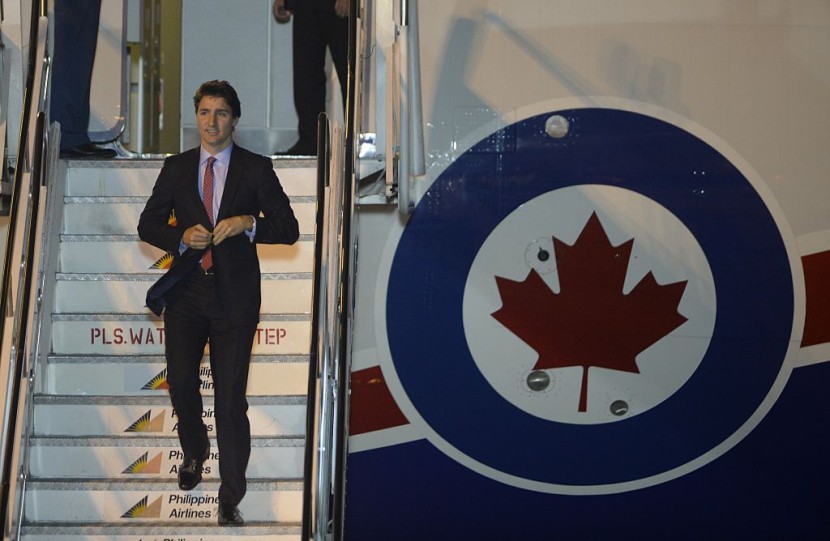
According to the prime minister's office, Canadian Prime Minister Justin Trudeau and the Canadian delegation were forced to spend an additional night in India on Sunday due to mechanical issues with their plane as it attempted to depart from the Group of 20 (G20) summit.
The Canadian Armed Forces informed us that CFC001 was having technical problems before we left for the airport," the prime minister's officer said in a statement provided to The Hill. Since there is no quick answer for these problems, our delegation will remain in India until new arrangements are arranged.
Trudeau's Trip to India: Diplomatic Challenges and Controversies
On Friday, Trudeau arrived in India, where the G20 summit was taking place in New Delhi. Narendra Modi, the prime minister of India, expressed his country's concerns about "anti-India activities of extremist elements" in Canada at a meeting with Trudeau on Sunday, according to a statement from the Indian Ministry of External Affairs.
Moreover, disputes and diplomatic tensions overshadowed Canadian Prime Minister Justin Trudeau's recent trip to India, where he addressed the G20 conference in New Delhi.
Despite efforts to improve bilateral ties, his meeting with Indian Prime Minister Narendra Modi raised several complex topics, from worries about "anti-India activities" in Canada to current demonstrations there about Indian affairs.
Technical issues with Trudeau's exit from the G20 meeting added to the tension of an already challenging tour. Per The Hill, Trudeau landed in India on Friday to participate in talks about international challenges alongside leaders from other G20 members.
Trudeau met with India's Prime Minister Narendra Modi on Sunday, a meeting that was greatly anticipated but ultimately ended up being quite tense. During the discussion, Modi expressed worries about what India views as "anti-India activities of extremist elements" in Canada, highlighting the connections between these forces and organized crime, drug cartels, and human trafficking.
According to India's Ministry of External Affairs, considering the two nations' shared commitment to democracy and close intercultural ties, Canada should also be concerned about these challenges. A week before Trudeau's trip, Canada announced that a public inquiry would be opened to investigate possible foreign interference in the 2019 and 2021 Canadian federal elections.
This news further complicated the situation for Trudeau's travel to India. Trudeau was re-elected as prime minister as a result of these elections. Such accusations can sour relations internationally, and India expressed concern over the timing of the disclosure.
It's important to remember that Trudeau and his delegation have already experienced problems with aircraft. According to CTV News, Canada's all-news network, in October 2016, a crisis forced Trudeau's plane to return to Ottawa only 30 minutes after takeoff.
The difficulties encountered by the Canadian delegation while traveling abroad were further highlighted in October 2019 when the VIP plane crashed into a wall while it was being pulled into an Ontario hangar.
Prime Minister Modi raised the continuing protests in Canada, particularly those involving Sikh communities, as one of his main concerns when he spoke with Trudeau. Given the 1984 killing of Indian Prime Minister Indira Gandhi by her Sikh bodyguards, India has been sensitive to similar protests.
Khalistan Protests in Canada: Straining India-Canada Relations
Protests in Canada frequently focus on calling for Khalistan, the autonomous Sikh nation. The Sikh community in Canada, mainly located in the Indian province of Punjab, has caused friction between the two nations, NDTV reported.
Recent events have made these tensions worse, such as the parade float depicting the killing of 1984. India accuses Sikh separatists in Canada of encouraging secessionism, inciting violence against Indian diplomats, destroying diplomatic properties, and endangering the Indian community and places of worship there.
Diplomatic implications have resulted from India and Canada's deteriorating relations. Just three months after both nations said they hoped to reach an initial agreement by the end of the year, Canada recently put the discussion of a planned trade deal with India on hold.
The fact that Modi decided without having a bilateral meeting with Trudeau during the G20 conference only highlights the existing tensions between the two countries.
In his speech, Trudeau reaffirmed Canada's dedication to upholding "freedom of expression, freedom of conscience, and peaceful protest." He clarified that although Canada maintains these fundamental liberties, it rejects violence and hatred.
Trudeau was adamant that the actions of a small number of people do not speak for the whole Sikh community or Canada. Another problem developed as Trudeau's trip to India was coming to an end. Due to an issue with the Canadian delegation's plane, he was late leaving the G20 conference.
The board's already enjoyable tour was extended when the Prime Minister's office declared they would remain in India until other arrangements were established.
Trudeau's visit to India amid controversies and diplomatic concerns highlights the complexity of international relations in a globalized society. While both Canada and India appreciate their democratic values and intercultural relationships, they also face difficulties related to past events and political unrest.
The tense atmosphere and the suspension of trade negotiations serve as a reminder that diplomacy is a delicate balance that calls for careful navigation and open communication to handle concerns and establish international ties.
Related Article : Italian Prime Minister Giorgia Meloni Set To Take Action To Separate From China's Belt and Road Initiative (BRI)
Social Media:








